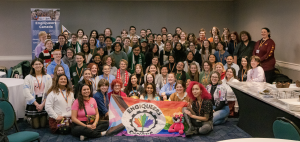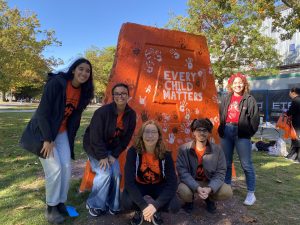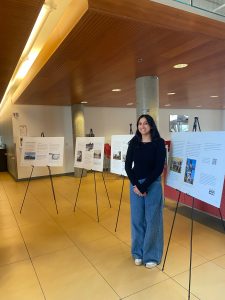In recent years, the fields of Science, Technology, Engineering, and Mathematics (STEM) have grown in both importance and opportunity. From addressing global challenges like climate change to advancing technological innovation, STEM is a driving force for societal progress. However, despite the growing need for diverse perspectives in these fields, Indigenous peoples remain underrepresented in STEM careers and education.
The lack of Indigenous representation in STEM is a critical issue, not just for Indigenous communities, but for society as a whole. In this blog post, we’ll explore why we need Indigenous pathways to STEM and how creating opportunities for Indigenous youth in these fields can benefit everyone.
1. Bridging the Knowledge Gap: Indigenous Knowledge Meets Western Science
One of the most compelling reasons we need Indigenous pathways to STEM is the opportunity to blend traditional Indigenous knowledge with Western scientific methods. Indigenous peoples have a rich history of understanding and managing natural resources, environmental systems, and sustainability. Indigenous science—passed down through generations—includes practical knowledge about agriculture, ecology, medicine, and astronomy, and is deeply connected to the land.
By creating pathways for Indigenous students to enter STEM fields, we not only uplift Indigenous voices but also create a unique opportunity to integrate traditional knowledge with modern scientific research. This approach – coined as Two-Eyed Seeing by Elder Albert Marshall – has the potential to offer innovative solutions to pressing global issues such as climate change, biodiversity conservation, and sustainable resource management. Indigenous ways of knowing and Western science are not mutually exclusive but can complement one another to create more holistic and effective approaches.
2. Breaking Barriers and Building Representation
Indigenous peoples continue to face systemic barriers to education and employment, particularly in fields like STEM. The historical impacts of colonization, residential schools, and forced assimilation have left lasting scars, with many Indigenous communities still dealing with the trauma of displacement and cultural erasure. These barriers, combined with a lack of role models and mentors in STEM, can make it difficult for Indigenous youth to see themselves in these fields.
Creating pathways to STEM for Indigenous students is essential to address these inequities. Representation matters—seeing people who look like you, share your background, or understand your community’s challenges can inspire hope and motivation. By encouraging and supporting Indigenous youth in pursuing STEM education, we are helping to build a future where Indigenous peoples are not just participants but leaders in these fields.
3. Empowering Indigenous Communities Through Education and Innovation
Increased access to STEM education can lead to greater self-determination for Indigenous communities. Indigenous communities often face unique challenges related to health, education, infrastructure, and economic development. By fostering Indigenous youth in STEM, we equip them with the skills and knowledge to solve these problems within their communities.
For example, Indigenous engineers and scientists can work to develop technology that addresses water quality issues in remote communities, or create sustainable energy solutions tailored to Indigenous ways of life. In doing so, these innovations can have a direct and positive impact on the well-being of Indigenous peoples while also contributing to the broader global community.
STEM education can also open up economic opportunities for Indigenous youth. With access to well-paying, high-demand STEM careers, Indigenous individuals can contribute to the economic development of their communities, break cycles of poverty, and ensure greater financial independence for future generations.
4. Contributing to Global Knowledge and Innovation
Diversity is a key driver of innovation. When people from diverse backgrounds, cultures, and experiences come together, they bring different perspectives that lead to creative problem-solving and new discoveries. Indigenous perspectives are vital to this process.
Indigenous peoples have long been stewards of the environment and have accumulated knowledge about sustainable practices that have been refined over thousands of years. By nurturing Indigenous pathways to STEM, we are not only advancing Indigenous rights to education and representation but also contributing to the global pool of knowledge and innovation. Indigenous scientists, engineers, and technologists bring a unique and invaluable worldview that can transform the way we approach some of the world’s most pressing problems.
5. Fostering Cultural Pride and Identity Through STEM
Education plays an important role in shaping one’s identity. For Indigenous students, having access to STEM education that acknowledges and incorporates their cultural heritage is critical for fostering a sense of pride and belonging. Indigenous pathways to STEM education can incorporate traditional knowledge systems, ensuring that students learn about the rich cultural practices and histories that have shaped their communities.
By creating STEM programs that embrace and respect Indigenous cultures, we help students develop confidence in both their cultural heritage and their academic abilities. This can have a ripple effect on future generations, inspiring more Indigenous youth to pursue education and careers in fields where they are historically underrepresented.
6. Collaborative Solutions for Sustainability
As we face growing challenges related to climate change, environmental degradation, and resource management, it’s essential that we include Indigenous knowledge in conversations about sustainability. Indigenous peoples have lived sustainably on the land for millennia, and their knowledge of ecosystems, biodiversity, and sustainable land practices is critical in the fight against environmental destruction.
Indigenous youth pursuing careers in STEM are uniquely positioned to lead the charge in developing sustainable solutions that respect both the environment and their cultural values. By creating educational pathways that promote collaboration between Indigenous knowledge systems and modern STEM disciplines, we ensure that future leaders have a holistic understanding of sustainability and are better equipped to tackle global environmental issues.
7. Supporting Existing Initiatives and Building Stronger Networks
There are already some inspiring programs in place that are helping to build pathways for Indigenous students in STEM. Initiatives like University of Manitoba’s ENGAP program provide holistic access and support for Indigenous youth pursuing careers in Engineering, while at the University of Calgary the Schulich School of Engineering has created the Schulich Indigenous Pathways Program. These programs are vital in addressing the disparities in access to STEM education and are crucial in nurturing the next generation of Indigenous scientists, engineers, and innovators.
However, more needs to be done to expand these programs, create more mentorship opportunities, and develop policies that support Indigenous students throughout their educational journey—from K-12 through university and beyond. Building strong networks of support within the STEM community will be key in ensuring that Indigenous students not only succeed but thrive in these fields.
Conclusion: A Future Where Indigenous Voices Lead in STEM
As we look to the future, it’s clear that we need Indigenous pathways to STEM at the University of British Columbia to create a more inclusive, innovative, and sustainable world. By empowering Indigenous youth to pursue STEM education at UBC, we’re not only addressing the underrepresentation of Indigenous peoples in these fields, but we’re also enriching the global community with diverse perspectives and invaluable knowledge.
Creating pathways to STEM for Indigenous students is not just about academic achievement—it’s about cultural empowerment, self-determination, and the opportunity to contribute to meaningful change. We all stand to benefit from a world where Indigenous voices are fully represented in the fields of science, technology, engineering, and mathematics. Let’s support Indigenous youth in their pursuit of these fields, and together, we can build a future that is brighter, more equitable, and more inclusive for all.



